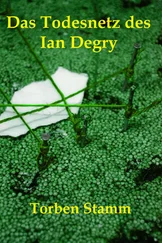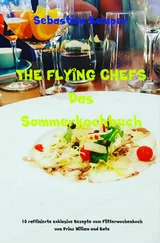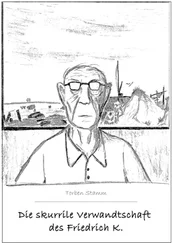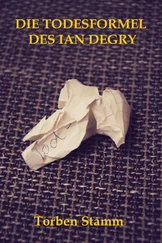THE MEN MUST HAVE got time off from work, because from now on they came every day and worked from early morning until late at night. They built a stage, fenced off the field, and put up a second tent. A portable toilet was brought along, and fridges and sinks installed. One time, a truck with a black cover was parked behind the stage, and a couple of fellows in black T-shirts set up lights and amplifiers. While Alfons was working after lunch on the top field by the edge of the woods, he could hear one of the men going one two, one two, all afternoon, one two, one two, and then a shrill whistling sound.
Occasionally someone would come up from the field and ask Alfons for a tool, or some bandages, or a wheelbarrow, whatever they happened to be short of. He fetched whatever it happened to be, and said, That’s fine. Oskar, his neighbor, turned up on the meadow almost every day, to keep an eye on things. He parked his Subaru on the grass and watched the workmen, kidded around with them, and lent a hand when asked.
The weather was cool that whole week, but sunny. At last, Alfons was able to put his French beans in and go out on the fields with his machines. At night he was tired, he just quickly filled in his weather chart and went to bed early. Then he heard the music and the voices of the men sitting around the fire after their day. The noise really didn’t bother him; on the contrary, he had the feeling of being part of the village for the first time.
On Friday morning the rain returned. Alfons worked all day in the tunnel, with a short break for lunch at home. He saw three men and a woman unloading instruments from a white minivan and carrying them onto the stage. When he finished work in the evening, there were already a few little tents up in the bottom of the meadow, and the first visitors were standing around on the festival site, mostly in rain ponchos, a few under umbrellas. From a temporary parking lot on the edge of the village, others walked up in dribs and drabs. The big feeding tent was lit up, even though it hadn’t gotten dark yet. The trestle tables were half full. Alfons wondered about going down there himself, but he had been outside all day, so he fixed himself something and ate it at home.
THE MUSIC STARTED a little after six. Alfons was listening to the evening news, then it was suddenly there, so loud it was as though the musicians were in his living room. He looked out the window. In spite of the rain, there was a decent crowd in front of the stage. From where he was, he couldn’t see the players. He sat down by the window, opened it a crack, and listened. Even though the music was very loud, the falling rain was clearly audible. It got a little quieter during the pause between sets, and Alfons sat down at his desk and did a few calculations, but as soon as the next band struck up, he couldn’t concentrate, and returned to his place by the window. In the meantime, even more people had turned up, the meadow was pretty full. Five hundred, reckoned Alfons, and he multiplied it by the entrance price. The bar must have a good turnover, and then there were the T-shirts with the festival logo on them. He had no idea what the bands were paid to perform, or what the equipment cost to rent. The building materials had presumably been provided free of charge by Klemens’s father, but if you threw in all the work the men had put in, there was probably not much left by the end.
There was another break, and a third band started to play, even louder than the two before. It had got dark by now, and there were colored lights flashing over the stage. A few people were dancing at the front. The crowd farther back was more slow-moving, swaying back and forth, as though trying to keep its balance on shifting ground. Right at the edge of the crowd, people were coming and going. A few sat on the grass, in spite of the rain.
Alfons was in bed by the time the music stopped on the dot of one. There was a fiercely strummed guitar chord, one last crash of the cymbals, and then some applause, followed by total silence. Alfons got up one more time and looked out of his bedroom window. Two spotlights under the roof of the stage were playing over the crowd. People dispersed, visitors drifted to their tents or to the parking lot. A sort of haze seemed to come off the people, and Alfons was put in mind of his father’s cows, standing steaming on the grass in the rain or fog.
There were two long lines outside the toilets, and in the campsite he could make out the uncertain beams of many flashlights. On the road a truck was parked, with motor running and lights on. Alfons watched the band climb into the truck and drive away. He was glad of his warm bed, and not to have to spend the night out of doors.
ALTHOUGH HE HAD got to sleep so late, and it was a Saturday, he was up at six. He had breakfast, got the details from the weather station, and ambled down to the festival site. It was no longer raining, but the sky was clouded over, it could begin again at any moment. There was no one on the doors. The meadow had been turned into a swamp, there was hardly a blade of grass left near the stage. There was litter everywhere, empty bottles and cigarette packs. Everyone seemed to be asleep, except in the food tent a couple of women were already at work. They said hello to Alfons, and he asked if there was coffee yet. In five minutes, said the younger of the two, and rolls should be here any moment as well. Aren’t you Klemens’s girlfriend? asked Alfons, and they shook hands. Jasmine, she said. Her father owned the farm machine store in the village, where Alfons had bought his seed drill.
Didn’t the music keep you up last night? asked Jasmine.
Alfons shrugged his shoulders. If you carry on like this, Oskar can start a potato patch here on Monday. She laughed. How many people did you get last night? he asked. Five hundred?
I don’t know exactly, we sold six hundred weekend passes in advance, but some of those people will only show up today. Or not at all, if the weather doesn’t improve.
Wouldn’t some straw help, for the meadow?
Oskar promised to put some down, said Jasmine. It would be nice if he got around to it before everyone gets up.
Klemens came across the meadow, clutching four paper bags. He said hello to Alfons and put the bags of rolls on the bar. Then he pulled a white plastic armband out of his pocket and handed it to him. I wanted to give you this, just in case you fancy coming on down. Although come to think of it, you’ve got a box seat up where you are. Or do you prefer folk?
I don’t listen to music, said Alfons, and once again he felt like an outsider.
Appenzeller bluegrass, said Klemens, and laughed.
The other woman came along with a coffee urn and filled four plastic cups. She gave one to Alfons and said, I’m Lydia. He thanked her. Conversation ceased while everyone drank their coffee and looked in different directions. Finally, Alfons asked Lydia if she lived in the village too. The question struck him as embarrassing in front of the other two. Klemens clutched at his forehead and said he had a headache, he must have overdone it last night. He sat down on one of the window seats. Jasmine went over and started stroking his head.
I’m a teacher, said Lydia, and when Alfons looked at her blankly, I live in Weinfelden, but I work here. I’m the new teacher.
Did Herr Tobler retire then? asked Alfons.
Lydia nodded. Do you run the farm up there?
Yes, he said, I’m not from here either.
She laughed and said, Yes, I can hear that.
I grow vegetables, organic vegetables.
All the veg I buy is organic, she said, pretty much.
Well, if you got it from the agricultural co-op, then you’ll have eaten something of mine, said Alfons. Lydia smiled. He didn’t know what else to say. Finally he asked what he owed.
Читать дальше
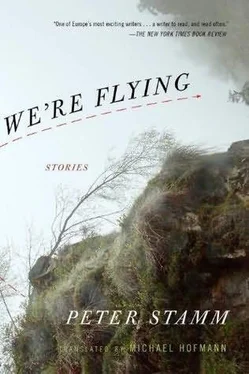

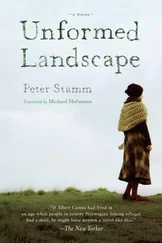



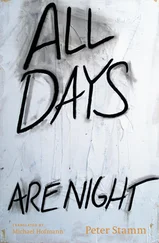
![Brian Jacques - [Flying Dutchman 01] - Castaways of the Flying Dutchman](/books/128851/brian-jacques-flying-dutchman-01-thumb.webp)
